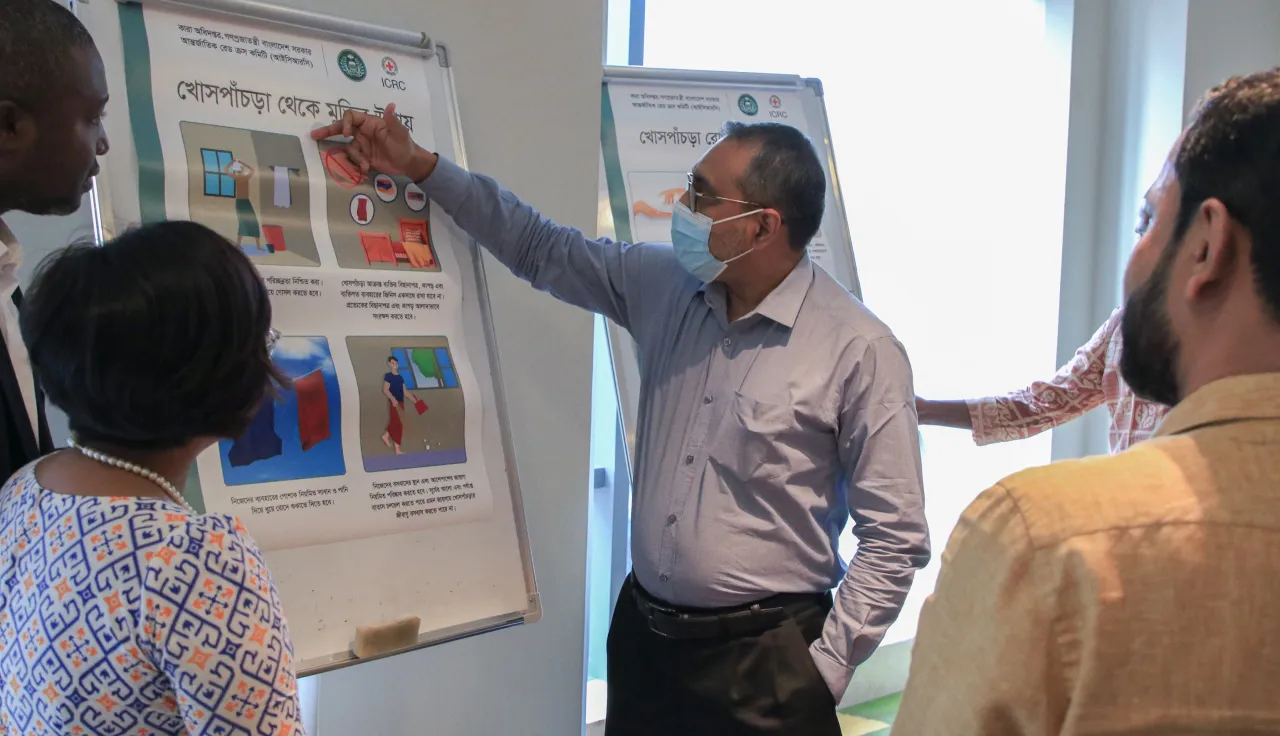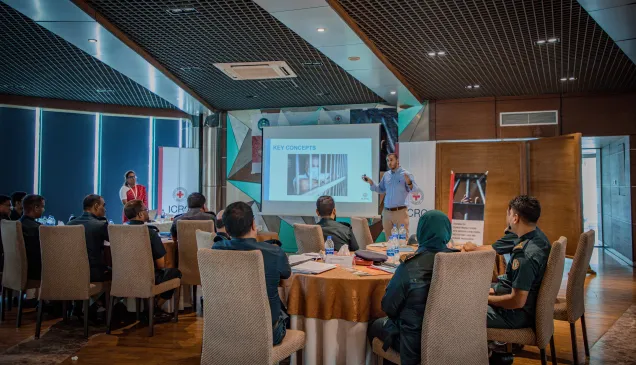Bangladesh: Workshop on developing protocol to tackle scabies in prisons

Similar to prisons around the world, scabies is a recurrent health problem in places of detention in Bangladesh.
One major challenge is that there is no national protocol for scabies management in the prisons. This is compounded by issues such as lack of health staff, limited resources and a lack of awareness among detainees and prison authorities.
To address this gap, the International Committee of the Red Cross (ICRC), together with the Communicable Disease Control (CDC) department of the Directorate General of Health Services (DGHS) and prison authorities in Bangladesh, facilitated a day-long workshop on 1 November to develop a guideline on effectively managing scabies outbreaks in the prisons.
Yacouba Barro, ICRC detention doctor, said, "Scabies outbreaks in prison settings are common not just in Bangladesh but also around the world. A holistic solution is important for preventing and controlling scabies in prisons. We hope this national level workshop will lead to the adoption of a national protocol for scabies management in prisons, while strengthening the multidisciplinary approach between health and prison authorities toward improving detainees' health."
Twenty participants from the Ministry of Home Affairs, DGHS, Society of Medicine, Society of Dermatology and civil surgeons from Cox's Bazar, Bandarban and Jessore joined the workshop alongside key partners like the CDC and the Prison Directorate.

20 participants from the Prison Directorate, DGHS, Society of Medicine, Society of Dermatologist, and Civil Surgeons from several districts (Cox’s Bazar, Bandarban, Jessore) attended the workshop to develop a guideline on ways to effectively manage scabies outbreaks in the Bangladeshi prisons.
Since the beginning of 2022, the ICRC's Health Care in Detention team in Bangladesh has been training health staff, prison guards and detainees to raise awareness about scabies at the central prisons in Keraniganj, Chattogram, Cox's Bazar, Bandarban and Jessore districts. Posters explaining symptoms of scabies and preventive measures were also distributed in all 68 prisons across the country as part of the awareness programme.
Controlling the outbreak of scabies in detention facilities is complex but crucial for maintaining the health, dignity and well-being of both detainees and staff. Invisible to the naked eye, the mites that cause scabies spread through direct contact and by sharing sleeping spaces and personal hygiene items. Having visited places of detention in Bangladesh since 2015, the ICRC has been supporting the efforts of the authorities to ensure humane standards and conditions of detention, covering areas such as health and hygiene, among others.



